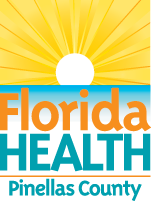It's a New Day in Public Health.
The Florida Department of Health works to protect, promote, and improve the health of all people in Florida through integrated state, county, and community efforts.
DOH-Pinellas: How Much do You Know About Carbon Monoxide?
September 18, 2015
HOW MUCH DO YOU KNOW ABOUT CARBON MONOXIDE?
How much do you know about carbon monoxide and its effect on your health? The Florida Department of Health (DOH) answers frequently asked questions about this highly poisonous gas.
What is Carbon Monoxide?
Carbon monoxide (CO) is a highly poisonous, odorless, colorless, tasteless gas that interferes with the delivery of oxygen in the blood to the rest of the body and is highly poisonous.
What are the major sources of CO?
CO is produced as a result of incomplete burning of fuels; including coal, wood, charcoal, natural gas, propane, gasoline, diesel, kerosene, and heating oil. It can be produced by portable generators, small gasoline engines, charcoal grills, gas stoves, portable fuel-powered space heaters, automobile exhaust from attached garages, and smoking tobacco. Problems can arise as a result of improper placement, installation, operation, and maintenance of CO generating devices or appliances.
Improperly designed or malfunctioning exhaust systems for permanently installed home combustion appliances may also contribute to elevated CO levels. Portable generators and charcoal grills are major sources of CO and should never be operated inside enclosed or partially enclosed buildings or near doors, windows, and openings to the house.
What are the symptoms of CO poisoning?
Depending on the level of exposure, CO may cause fatigue, weakness, chest pain for those with heart disease, shortness of breath upon exertion, nausea, vomiting, headaches, confusion, lack of coordination, impaired vision, loss of consciousness, and in severe cases, death.
What should you do if you think you have CO poisoning?
Don’t ignore symptoms, especially if more than one person is feeling them. Anyone who suspects symptoms of CO poisoning should go outside the home or building immediately and seek prompt medical attention. If a person has collapsed or is not breathing, call 911 for emergency medical assistance immediately from a safer location such as outside or from a neighbor's home. Call the Florida Poison Information Center at 1-800-222-1222 for additional information and advice about CO poisoning. CO poisoning is a reportable disease and all suspect cases need to be reported to your county health department’s epidemiology program. The DOH-Pinellas epidemiology department may be reached at (727) 507-4346.
What can be done to prevent CO poisoning?
To prevent CO poisoning, ensure all household combustion appliances (fireplaces, stoves, water heaters, furnaces) are properly adjusted and working to manufacturers’ instructions and local building codes. Make sure the exhaust of stoves and heaters are vented to the outside and do not leak.
Do not use ovens and gas ranges to heat your home. Do not burn charcoal inside a home, cabin, recreational vehicle, or camper, and never leave a car or lawn mower engine running in a shed or garage, or in any enclosed or partially enclosed space. NEVER use gas-powered generators or pressure washers inside any building or structure. Ventilating a building or structure will not prevent the buildup of life threatening levels of CO. Do not locate portable generators or portable gasoline engines near any opening of a house (windows, doors, window air conditioner, exhaust vents). ALWAYS install at least one battery-powered or plug-in CO alarm (with battery backup) in your home.
What about CO alarms?
Consider installing CO alarms in your home. The US Consumer Product Safety Commission recommends the installation of CO alarms in every home. Install battery-operated CO alarms or plug-in CO alarms with battery backup according to manufacturer’s installation instructions. The CO alarm should be certified to the requirements of the latest safety standards for CO alarms (UL 2034, IAS 6-96, CSA 6.19.01).
REMEMBER: CO alarms can be used as a backup, yet not as a replacement for proper use, placement, and maintenance of your fuel-burning appliances or gas-powered portable equipment. Also, understand that CO alarms are designed to sound an alert at fairly high levels. Lower level CO exposure below the alarm threshold could still contribute to adverse health effects in susceptible individuals (persons with heart or lung disease for example).
For more information about DOH-Pinellas, go to www.PinellasHealth.com.
About the Florida Department of Health
The department works to protect, promote and improve the health of all people in Florida through integrated state, county and community efforts.
Follow us on Twitter at @HealthyFla and on Facebook. For more information about the Florida Department of Health please visit www.FloridaHealth.gov.
For Media Inquiries
@HealthyPinellas
@HealthyFla





Connect with DOH